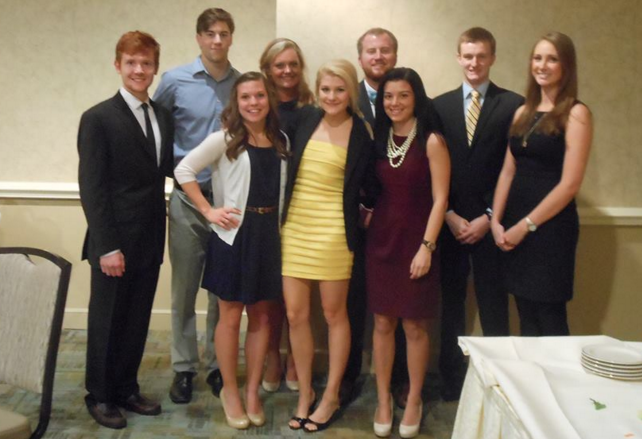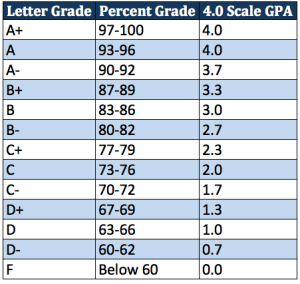
Run for president of Amicus Curiae Pre-Law Society? Of course I wanted to.
Beyond the resume-boost, the opportunity to develop my people management skills in a low-risk environment also attracted me. And leadership is fun, so I thought, “What could be so hard?”
Turns out, my thoughts toward this leadership position were extremely naive. I didn’t know that a rude awakening waited for me the moment I took over this student organization.
But before we get into my leadership struggles, I’ll first lay out some background information to help you better understand the scene.
Background Of My Leadership Position
For proper context, I knew I wanted to be president of Pre-Law Society as a freshman. I did my best to attend every meeting, help out in recruiting, and go to all of the programming events. During this time, I also made my interest of running for president known to the current exec board to get some helpful advice.
To get more leadership experience for my future run at president of Pre-Law Society, I decided to become president of my resident hall’s community council as a sophomore. This leadership position required a weekly meeting, planning programming for all the residents with about a $2,000 budget, and finding ways to engage the local community residents.
Overall, I did my job well, but the position didn’t bring up too many challenges. The exec team included two to three volunteers, who weren’t elected and I felt lucky if they showed up. Looking back, this position gave me a misguided view of leadership.
As this community council president position ended, I decided to run for the president-elect of Amicus Curiae Pre-Law Society. I campaigned, gave a speech, and won the election. After learning under the president at the time for one semester as president-elect, I became president of Amicus Curiae Pre-Law Society.
In this president role my responsibilities grew to leading an executive board of eight people: vice president of programming, vice president of communication, treasurer, treasurer-elect, secretary, service chair, social chair, and pre-law liaison. Also, I was responsible for some recruiting, programming, and formal duties for around 80 general body members, give or take.
From the beginning, things got off to a rocky start. Continue on to see why.
Leadership Lessons And Failures
These are the three main failures in my role of leadership:
Failure #1 = Email debacle
The first major problem occurred way too soon, about a week into my first semester of president. What happened was one exec member emailed the whole group her concerns and frustrations about the exec team’s turnout and commitment to a Winter Mega-Fair event.
Trying to be a good president, and since I mostly agreed with her, I decided to ‘Reply All’ on the email chain to the entire exec team to back my support for her concerns. I didn’t know what I did would spark a firestorm of 15 long emails back and forth between exec members who thought the initial email and my response were rude and unfair.
I eventually brought the group together for an in-person meeting and also met individually with some members. I shared my thoughts and cooled the air, while also making a rule that future emails should only go to me, and then I’ll massage them for the group.
But, most of the trust couldn’t be recovered as the exec members took hard sides on this email debacle. Also, I learned email is a terrible medium for intense conversations because body language and tone can be easily misinterpreted, as it was in this case.
Failure #2 = Mismanaging friendships and professionalism
If the exec board choosing sides on the email debacle didn’t make things bad enough, the friendships among exec members (including myself) had an equally negative effect on our team.
Many times when a decision needed to be made about our member requirements or programming, each min-group of friends teamed up against each other. I didn’t know how to handle this, so I let it go unresolved essential my entire term.
Plus, since I had friends on the exec board, I gave leeway to some exec members when I should have held them more accountable to do their job. Because of this leeway, other exec members became upset when they were doing their work, but didn’t see their peers following through in the same way.
Failure #3 = Trying to control instead of inspire
After some rocky starts beyond the first two failures, I had many chinks in my leadership armor. To compensate for my struggles, I thought the best solution was to have tighter control over exec meetings and delegate what tasks I saw fit for the team.
But, instead of productive exec meetings—to bounce ideas off one another, get stuff done, and help each other—it turned into more silent, awkward meetings that everyone couldn’t wait to leave. A work environment like we had didn’t inspire action, but instead procrastination or no effort at all because exec members’ questioned if their effort was worth their time.
What I Learned Leadership Is
Leadership is not about the leader: Due to some disunity of the exec team and my lack of experience, I believed I needed total control or the whole organization would turn upside down. I started to think of how bad failure would look on me as president, so I dominated more of the conversations and decisions.
But, where I missed the point is that the best leaders lead to serve the interest of the members and exec members. And when I tried to hold onto more responsibilities out of fear, I failed to inspire positive action in other exec members.
Leadership is crucial to the group’s success: Looking back, it’s obvious that the exec team’s tension stemmed from some of my tension with exec members. What’s even worse is that some of the members could sense the tension from the exec team during general body meetings. This unfriendly appearance between exec members obviously wasn’t appealing to members.
Ultimately, Pre-Law Society did some things well, like impressive programming thanks to the VP of Programming, and we increased membership by a good amount. But, if I handled some relationships better, then the culture and exec team would have improved. Plus, this result would boost the member experience at meetings and their attendance.
Leadership is rewarding: Although there was drama and difficulties managing the other exec member’s responsibilities with my own, being president marked a rewarding college experience that I don’t regret. The lessons I learned have helped me become a better leader and team member in my group projects and group efforts in the workplace.
Because the best way to learn what leadership is about is to lead yourself, I definitely encourage you to run for a leadership position. Whether the position is for a student organization, local group in your hometown, or simply coaching your siblings sports team, do it now while the stakes are lower.
If you remember that leadership is: not about the leader, crucial to success, and rewarding, you will already be way ahead of me and most leaders.
Readers, what do you think leadership is? What are your experiences as a leader? Do you believe people either have the gift of leadership or they don’t? Or is it a skill that can be improved?


